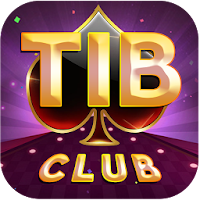The God of War series has captivated gamers across four generations of PlayStation consoles, starting its journey in 2005 with Kratos' quest for vengeance. Over the past two decades, the franchise has evolved remarkably, adapting to stay relevant in an ever-changing gaming landscape. A pivotal moment came with the 2018 reboot, which shifted the setting from Ancient Greece to Norse mythology, fundamentally altering both the series' narrative and gameplay. Yet, even before this dramatic change, Sony Santa Monica introduced smaller yet significant updates that kept the series fresh and engaging.
For God of War to continue its success, reinvention remains crucial. The transition to Norse mythology was just the beginning, with director Cory Barlog hinting at potential explorations into Egyptian or Mayan settings. While these are currently rumors, the allure of Ancient Egypt's rich culture and mythology is undeniable. However, a new setting alone isn't enough; the series must continue to evolve in the same innovative spirit that transformed the Greek trilogy into the critically acclaimed Norse saga.

The original Greek games evolved over a decade, refining their hack and slash mechanics and enhancing their visual presentation with each new release. By the time God of War 3 launched on the PlayStation 3, the series had polished its gameplay to perfection, introducing a revamped magic system and more diverse enemies. The shift to a more powerful console allowed for enhanced camera angles, showcasing the game's graphical prowess.
The 2018 reboot saw significant changes, such as the removal of platforming sections due to a new third-person, over-the-shoulder camera perspective. While puzzles remained, they were adapted to fit the new adventure-first design. The Valhalla DLC for God of War Ragnarök marked a return to the series' roots, reintroducing battle arenas with a Norse twist and allowing Kratos to confront his past, effectively closing the narrative loop from the Greek era.

Beyond revisiting past concepts, the Norse games introduced innovative mechanics like the Leviathan Axe's unique throwing abilities, a combat-defining parry system, and the magical spear in Ragnarök, which added a faster, explosive combat style. These elements enriched exploration across the Nine Realms, each with unique foes and environments.
The narrative evolution from the Greek to the Norse games is equally profound. The Norse duology delves into Kratos' emotional journey, exploring his grief and strained relationship with his son, Atreus, which forms the core of the story. This shift from the more straightforward storytelling of the original trilogy to a more nuanced, emotive narrative has been key to the Norse era's success.
God of War's success stems from its ability to evolve while staying true to its core. Unlike other franchises, such as Assassin's Creed, which struggled to maintain its identity after shifting to an open-world RPG format, God of War has managed to reinvent itself without losing its essence. The Norse games are seen not as traditional sequels but as extensions of Kratos' journey, a perspective that should guide future installments.
Assassin's Creed's mixed reception to its shifts in style highlights the risks of straying too far from a series' roots. God of War, however, has navigated these changes skillfully, building upon the intense combat of the Greek trilogy while introducing new elements that enhance the experience. Future games, whether set in Egypt or another realm, must continue to evolve while maintaining the series' identity and deepening its lore.
As rumors of an Egyptian setting circulate, the next God of War game must focus on storytelling, the true strength of the Norse duology. Kratos' transformation from a rage-driven warrior to a complex father and leader has been central to the series' recent success. Whatever comes next must build on this narrative strength while introducing bold innovations that define the next era of God of War.






